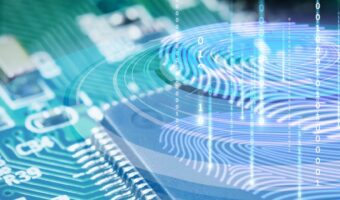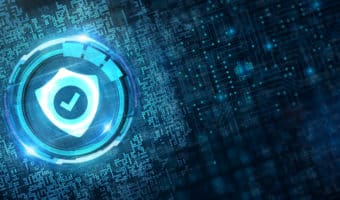Program Overview
The Bachelor of Science in Artificial Intelligence (AI) immerses students in the exciting world of AI technology. This program provides students with a solid foundation in both the theoretical underpinnings and practical applications of AI, empowering them to drive innovation, solve complex challenges, preparing students for a wide range of careers in industries such as technology, healthcare, finance, and robotics.
NEIT’s Artificial Intelligence program provides a wide array of courses including cloud-based application development, cloud foundations, Java, algorithms, big data, and applied machine learning. You will also become skilled in SQL, Python, analytic dashboards, cloud tools as they exist on the Microsoft Azure, AWS, and Google platforms, Hadoop, and Microsoft’s visualization tool PowerBI. As you become proficient with these tools and platforms you will be prepared to obtain industry standard certifications such as AWS Cloud Practitioner, AWS Data Analytics Specialty, AWS Machine Learning Engineer, Azure AI Engineer Associate, and Azure Data Engineer Associate. You will also learn about new industry subjects such as facial recognition, natural language processing (NLP), autonomous driving, robotics, predictive technology and more.
Read MoreFull Description
Artificial Intelligence (AI) is embedded in our daily lives and is evolving to include robust new capabilities. Traditionally, AI has served as a data management and analytic tool. Generative AI is creating new solutions to complex problems.
At NEIT, you will learn hands-on skills that will help you adapt to the new careers AI is creating. You will begin with the fundamentals upon which AI is built so that you can create and manage AI for the good of your future organizations, the good of your communities, and for the advancement of humanity. You will also learn about how to protect against the potential hazards of AI.
In addition to AI technologies, you will learn the foundational skills that will allow you to adapt and thrive in an environment that is changing every day. Artificial Intelligence at NEIT focuses on working collaboratively, creatively, and being open to new ideas. You will be honing your critical thinking skills, learning about AI ethics, and always working with integrity.
A key feature of this program is a senior project and the choice between additional coursework or a cooperative learning experience in the final two terms. In the senior project, each student works with a faculty member to develop and present a project that focuses in depth on a particular topic and allows students to bring together knowledge gained throughout the program.
The cooperative learning experience based on industry demand and with the approval of the Computer Science Department Chair, may be available during the final two terms of the program. These experiences, which may be paid or unpaid, allow students to receive college credit and to work off campus in an organization where they will practice and enhance their technical skills. Typically, and when available, students will work in the same organization for the final two terms of the bachelor’s degree program.
Upon completion of this program, graduates will be prepared to apply for positions such as software developer, analyst, programmer, database specialist, software engineer, Machine Learning Engineer, Data Scientist, Natural Language Processing (NLP) Engineer, Computer Vision Engineer, AI Software Developer or Data Engineer. Students may also choose to continue into the NEIT Master of Science in Information Technology degree program.
Potential Career Opportunities
NEIT’s Artificial Intelligence degree will introduce students to many exciting job opportunities across all industries in this rapidly emerging job market. After completing the program, students will be prepared for positions such as the following:
AI Software Developer
Machine Learning Engineer
Data Scientist
AI Data Engineer
Software Analyst
Database Specialist
Natural Language Processing (NLP) Engineer
Computer Vision Engineer
And more!
FAQ
-
What is Artificial Intelligence?
The term ‘artificial intelligence’ was coined as early as 1950, and in its simplest form is defined as a machine’s ability to perform the cognitive functions we usually associate with human minds – such as learning, reasoning, self-correction, and creativity. Today, the science and engineering of Artificial Intelligence is rapidly emerging into a field that has the potential to reach all industries.
-
What careers will the Bachelor’s Degree in Artificial Intelligence prepare me for?
Upon completion of this program, graduates will be prepared to apply for positions such as software developer, analyst, programmer, database specialist, software engineer, Machine Learning Engineer, Data Scientist, Natural Language Processing (NLP) Engineer, Computer Vision Engineer, AI Software Developer or Data Engineer. Students may also choose to continue into the NEIT Master of Science in Information Technology degree program.
-
What applications and skills will I learn in the Bachelors in Artificial Intelligence program at NEIT?
NEIT’s Artificial Intelligence program provides a wide array of courses including cloud-based application development, cloud foundations, Java, algorithms, big data, and applied machine learning. You will also become skilled in SQL, Python, analytic dashboards, cloud tools as they exist on the Microsoft Azure, AWS, and Google platforms, Hadoop, and Microsoft’s visualization tool PowerBI. As you become proficient with these tools and platforms you will be prepared to obtain industry standard certifications such as AWS Cloud Practitioner, AWS Data Analytics Specialty, AWS Machine Learning Engineer, Azure AI Engineer Associate, and Azure Data Engineer Associate. You will also learn about new industry subjects such as facial recognition, natural language processing (NLP), autonomous driving, robotics, predictive technology and more.



